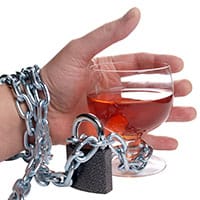When the love of your life has a drinking problem, it becomes your problem, too. Being the partner of a person addicted to alcohol increases your risk of experiencing stress, anxiety, depression, relationship turmoil and emotional and physical abuse. If you feel like you’re all alone with these concerns, it only compounds the risk. That’s why a recent study looking at the value of web-based support is welcome news. The study showed that help can be as close as your computer, tablet or smartphone, provided that you choose a well-designed online resource geared specifically to your needs. For the study, researchers at the University at Buffalo Research Institute on Addictions developed an interactive online program. “We found that our program can significantly improve coping skills and significantly reduce anger and depressive symptoms in women whose partners have an alcohol use disorder,” says lead researcher Bob Rychtarik, PhD.
Putting Online Help to the Test
About 7.7 million Americans are married to or live with a partner who has an alcohol problem. Those who try to find help and support in the offline world often run into barriers. Some can’t find family support groups or affordable counseling available in their area. Some are stymied by issues with scheduling, transportation or babysitting. And others fear retribution from their families. Recognizing an unmet need, Dr. Rychtarik and his colleagues set out to develop an online program that would help women with an alcoholic partner strengthen their coping skills. The researchers built a website that included animated presentations and video dramatizations of the most effective ways to deal with common problems. Certified counselors were available to chat online or by phone. Eighty-nine women who were distressed by a partner’s drinking volunteered to test drive the online program. After eight weeks, they were less unhappy, and the coping skills they had learned seemed to be a big part of the reason.
Shoring-Up Coping Skills
The online program used in the study aimed to bolster five key coping skills:
- Taking care of personal needs. This involves shifting from focusing totally on the partner’s problem to focusing on a woman’s own needs and emotional health, says Rychtarik. Women were encouraged to build up their social network, work on personal goals and make time for fun activities.
- Managing negative thinking. “Initially, some negative thinking (e.g., ‘I hate him,’ ‘he doesn’t love me’) is a normal reaction to the problems arising from living with a partner with an alcohol use disorder,” says Rychtarik. But continually agonizing over such thoughts is counterproductive. Women were given tips on how to reduce the intensity of negative thinking.
- Solving problems effectively. Successful problem solving involves several steps: defining the problem clearly, generating possible solutions, considering likely consequences, picking a solution to try and evaluating how well it works. Women were led through the process step by step.
- Communicating clearly and consistently. Good communication often boils down to talking about problems in a caring but firm manner, says Rychtarik. Women were shown how to to clearly state a problem, state its effect on her and request a specific change in her partner’s behavior.
- Using functional analysis. This involves examining the short-term and long-term consequences of different responses to a partner’s drinking. Rychtarik says, “For example, in the short term, yelling and cussing out the partner about coming home intoxicated may, in a way, be positively reinforcing. It lets out a lot of angry feelings, resulting in some immediate, short-term release.” But in the long run, it’s not very helpful. Women were given tips on gauging long-range consequences and using that information to guide their choices.
This particular online resource isn’t available to the public yet. Rychtarik and his colleagues want to do further research first. However, they hope it will someday be widely available for women who need somewhere to turn for help with a partner’s drinking — and who like the idea that “somewhere” is just a click away.
Finding Support Online
In the meantime, there are numerous other websites and online forums that offer addiction-related information and support. But which ones provide real help when you’re dealing with a partner’s alcohol problem? “Helpful online resources should be completely anonymous and voluntary,” says Paul Hokemeyer, JD, PhD, a family and addictions therapist in New York City. He recommends avoiding websites that involve a hard sell, whether it’s for a product or a program. If you plan on joining an online discussion group, be particularly selective. Dr. Hokemeyer advises: “Take your time finding an online community you feel comfortable being a part of — one that reflects back who you are rather than someone the members want you to be. You should feel better after you leave the discussion, with a sense of strength, dignity and hope to continue on your journey.” Hokemeyer believes that carefully selected online resources can be invaluable for both women and men who are troubled by a partner’s drinking. He notes that fear of being judged is often one of the greatest obstacles to seeking face-to-face help. “Online resources open up a whole new world,” he says. By Linda Wasmer Andrews Follow Linda on Twitter at @lindawandrews




